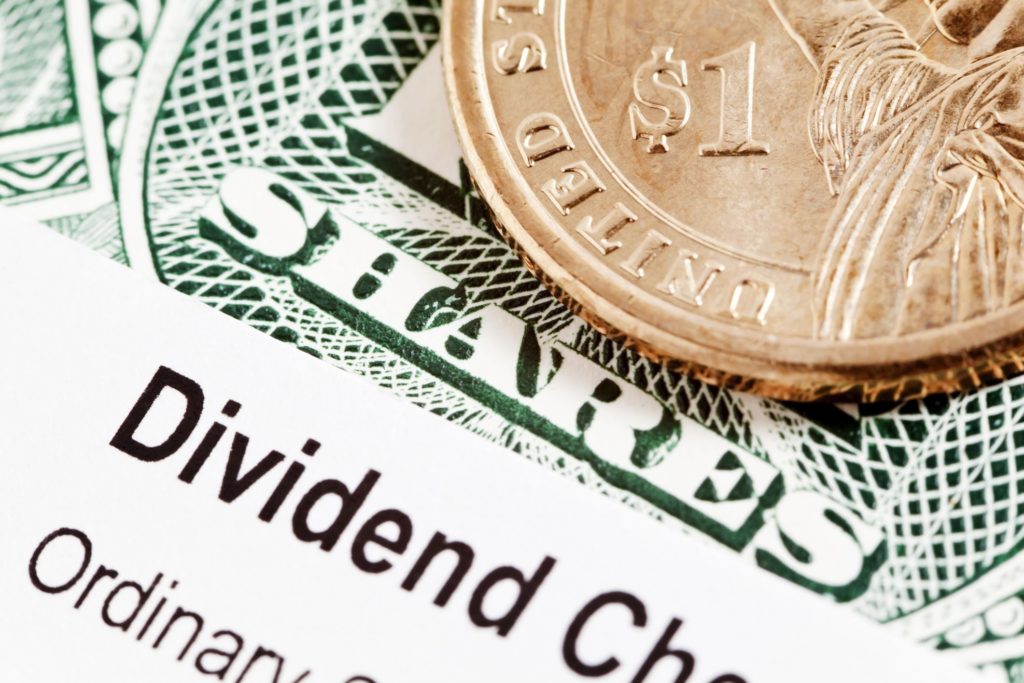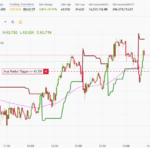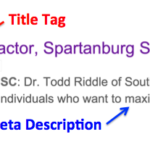A stock dividend is a dividend payment made in the form of additional shares rather than a cash payout, and it is also known as a “scrip dividend.” To exemplify, when a company declares a 15% stock dividend, this means that every shareholder receives an additional 15 shares for every 100 shares he already owns. A company usually issues a stock dividend when it does not have the cash available to issue a normal cash dividend, but still, wants to give the appearance of having issued a payment to investors.

www.thebalance.com
How is this work? In reality, the total market value of a company remains the same. In this situation, a company has issued more shares, so the same market value is simply spread over more shares, which likely reduces the value of the shares to compensate for the increased number of shares.
For instance, if a company has a total market value of $10 million and it has 1 million shares outstanding, then each share should sell on the open market for $10. If the company then issues a 15% stock dividend, there are now 1,150,000 shares outstanding, but the market value of the entire firm has not changed. Thus, the market value per share after the stock dividend is now $10,000,000 / 1,150,000, or $8.70.
As mentioned previously, a stock dividend is a distribution of shares to existing shareholders in lieu of a cash dividend. These types of dividends happen when a company wants to reward its investors but either does not have the capital to distribute or it wants to hold onto its existing liquidity for other investments. Stock dividends also have a tax benefit where they are not taxed until the shares are sold by an investor. This makes them beneficial for shareholders who do not need urgent capital.
In many ways, for both the company and the shareholder to pay and receive a stock dividend at the end of a profitable fiscal year is more desirable. This type of dividend is as good as cash, with the extra benefit that no taxes have to be paid when receiving the same.
Another advantage of a stock dividend, companies that pay stock dividends are giving their shareholders the choice of keeping their profit or turning it to cash whenever they desire, whereas, with a cash dividend, no other option is given. A stock dividend can, therefore, be seen as a win-win situation that has potentially enormous rewards for the shareholder.
To illustrate how this has potentially huge benefits for the shareholders particularly when the company grew very well, massive wealth will be obtained by the shareholders. Many impressive cases reflected such as Microsoft and Apple, with a few hundred dollars’ worth of shares turning shareholders into millionaires in a span of a few years.
One hundred shares of Microsoft bought at $21 per share in 1986, for example, ballooned to 28,800 shares after 25 years. This turned Bill Gates into the richest man in the world, even as Microsoft’s shareholders and employees who got shares of stock in the company’s early years into multimillionaire status.
Apple’s shares are also shown the same trend. In 1997, a share was worth $3, less than 10 years later, Apple shares were going for $200. Even the early termination of Apple cofounder Steve Jobs did not cripple the company; his successor Tim Cook has ably filled Jobs’ shoes. Shareholders who inclined of their stocks must be everlastingly cursing themselves for taking the cash instead of holding on to their shares for just a little bit longer.
This does not mean that opting for stock dividends is always better than taking the cash because sometimes the stock market can be unpredictable. The start of Great Depression on Oct. 24, 1929, will be remembered as the first day of a stock market collapse that crippled the United States for the next several years. Just days before, the Dow Jones appeared rock solid. During the Depression, most shares of stock were not worth the paper on which the stock certificates were printed.
The most excellent ground for giving a stock dividend instead of a cash dividend may be that in giving a stock dividend, a company and its shareholders create psychological stronger links, with the latter owning more of the company with the additional shares.






